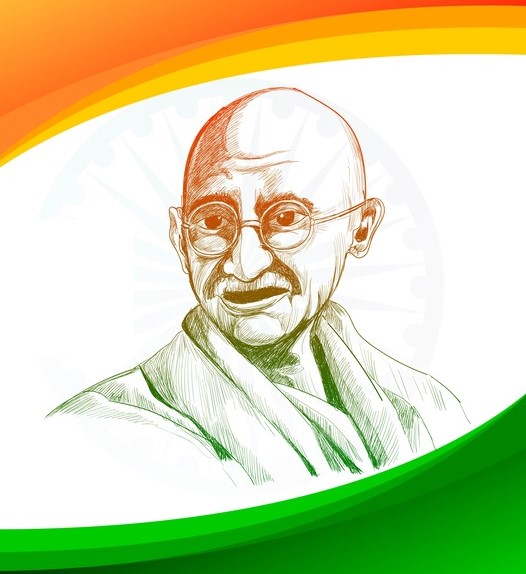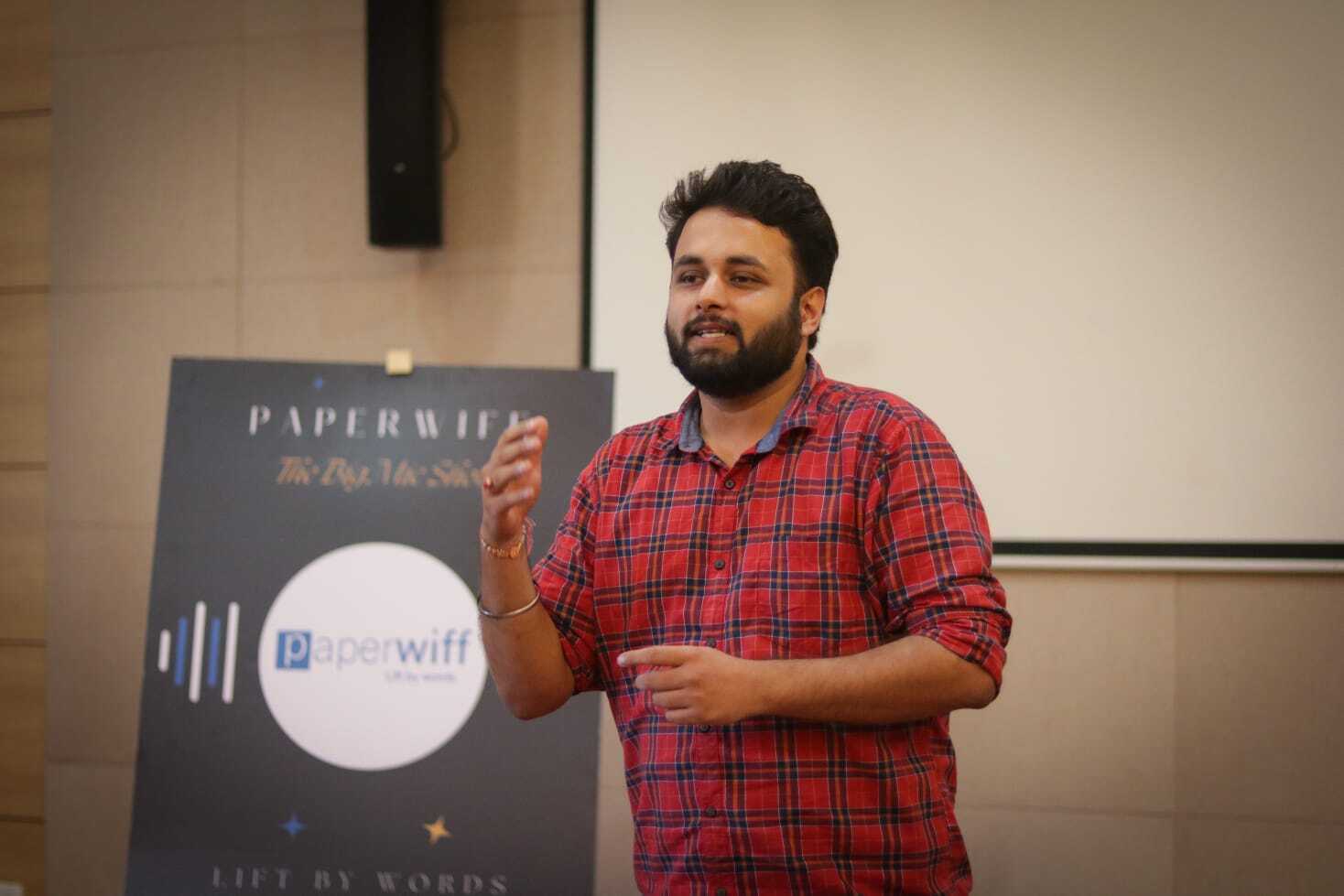Mohandas Karamchand Gandhi, universally known as Mahatma Gandhi, was a pivotal figure whose principles of non-violence, truth, and civil disobedience inspired millions. These Mahatma Gandhi Quotes are a testament to his commitment to these principles, even in the face of immense opposition and hardship.
Gandhi’s words have been immortalized in countless quotes that continue to inspire and guide us toward a path of peace, equality, and righteousness. His teachings touch on various aspects of life, from personal growth to societal change, spirituality, leadership, and beyond. This piece will delve into some of his most impactful quotes and their meanings.
Quotes on Life
1. “Be the change that you want to see in the world.”
Meaning: If you want to see a positive shift in the world, you have to start with yourself. By embracing the transformations you wish to witness in society, you become a beacon of inspiration for others to follow.
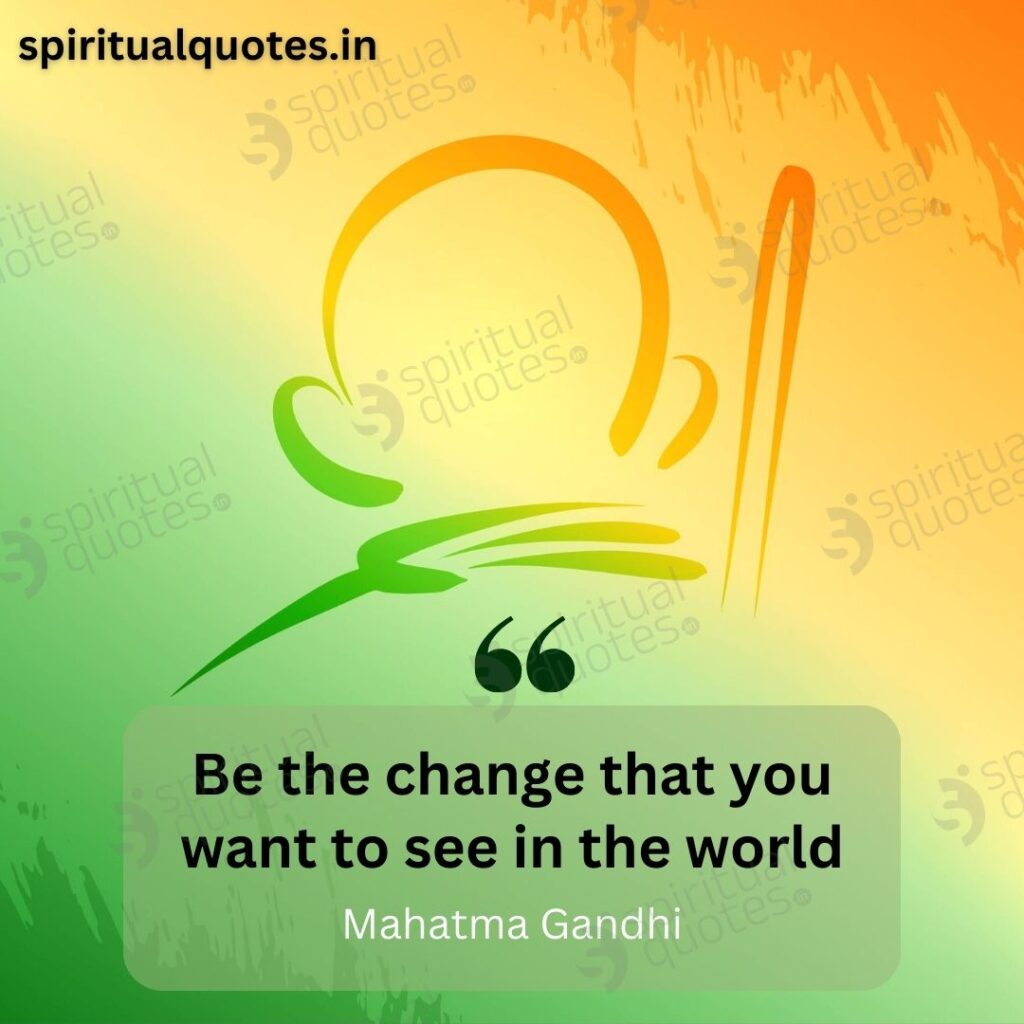
2. “Live as if you were to die tomorrow. Learn as if you were to live forever.”
Meaning: Embrace every moment with zeal and live your life to the fullest, as if each day is your last. At the same time, commit to a lifetime of learning with an insatiable curiosity, as knowledge is the most powerful tool you can wield.
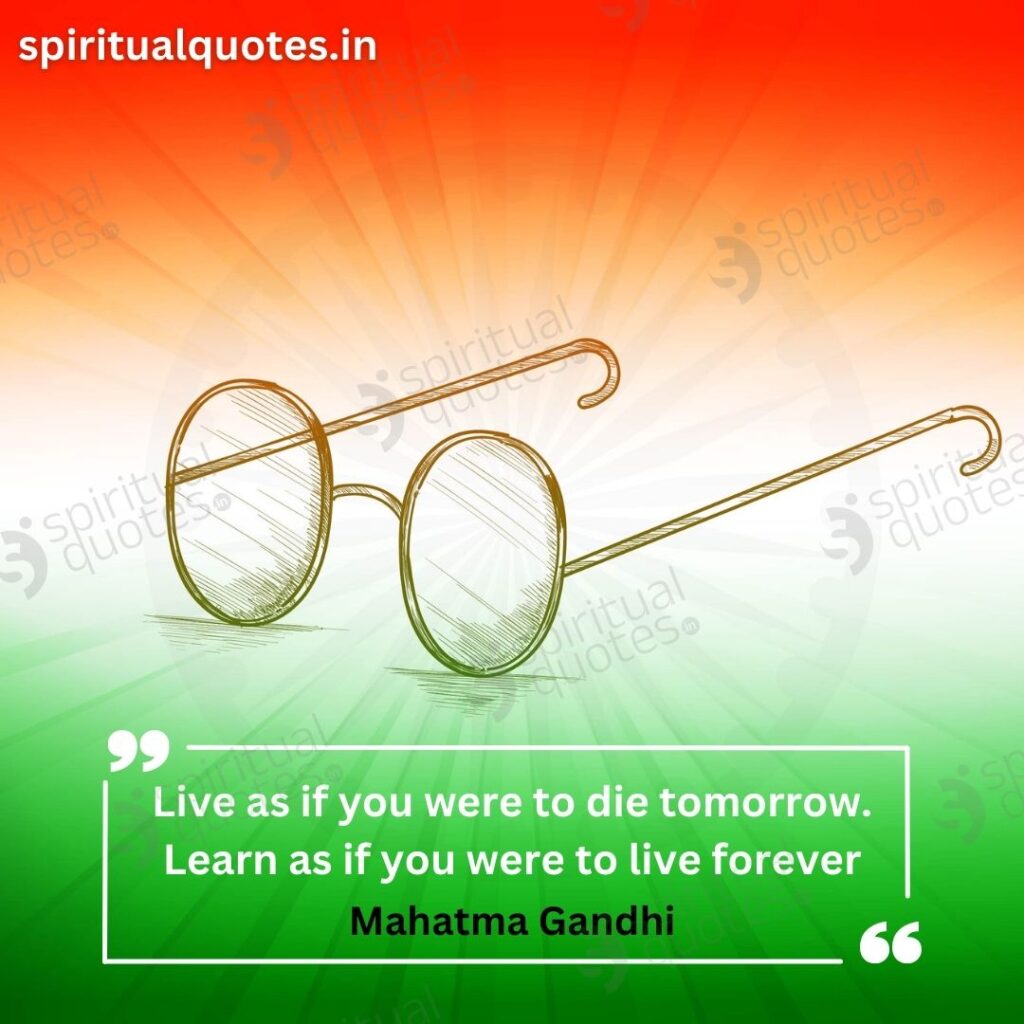
3. “Happiness is when what you think, say, and do are in harmony.”
Meaning: True contentment comes when our thoughts, words, and actions align perfectly. Inner peace and happiness thrive when there’s a coherence between our internal world and external expression.
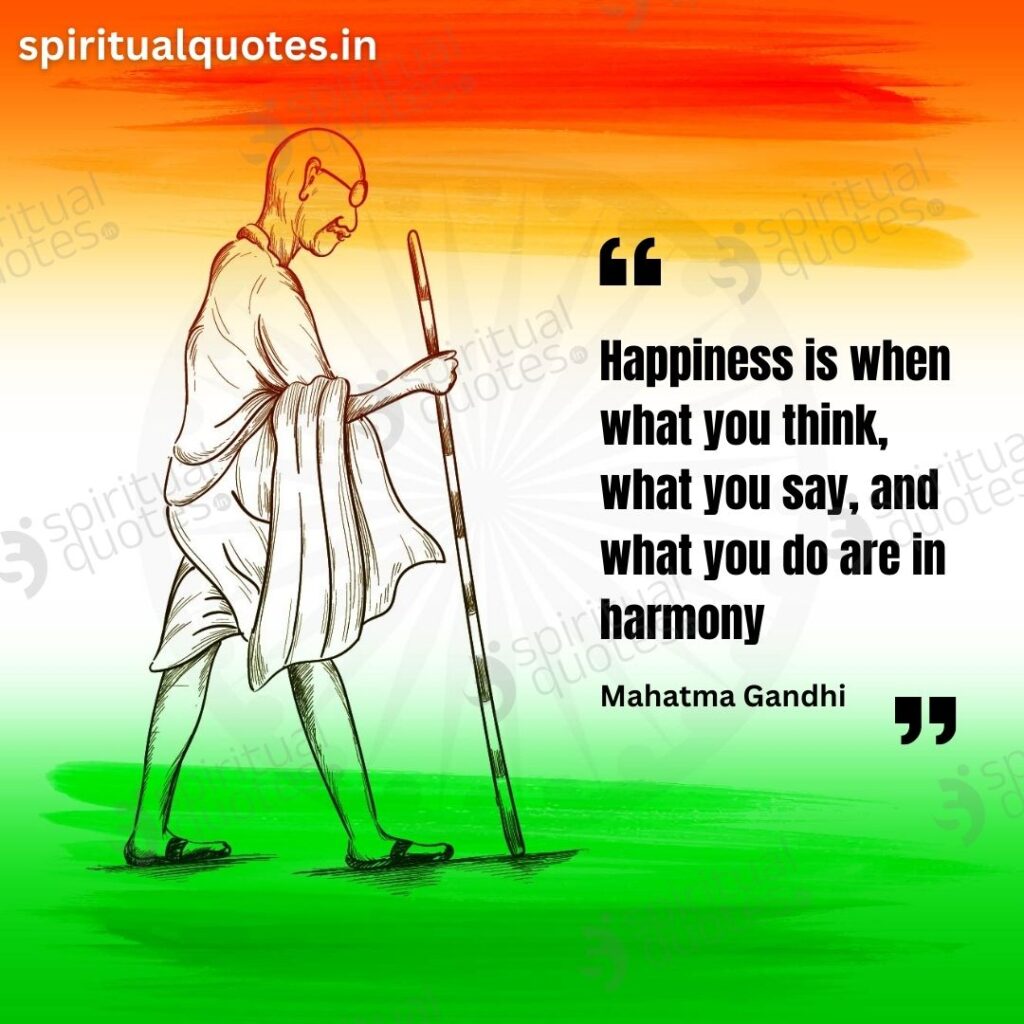
4. “An eye for an eye will make the whole world blind.”
Meaning: If we respond to every act of harm with vengeance, we will only propagate a cycle of violence and hatred. The path of understanding and forgiveness is the road to peace.

5. “Strength does not come from physical capacity. It comes from an indomitable will.”
Meaning: True strength is not just about physical prowess but the power of determination and will. When faced with adversity, your resolve will help you overcome challenges and triumph.

6. “In a gentle way, you can shake the world.”
Meaning: Small actions done with great love can have a profound impact. Though soft, kindness and compassion can transform the world in ways you can’t imagine.
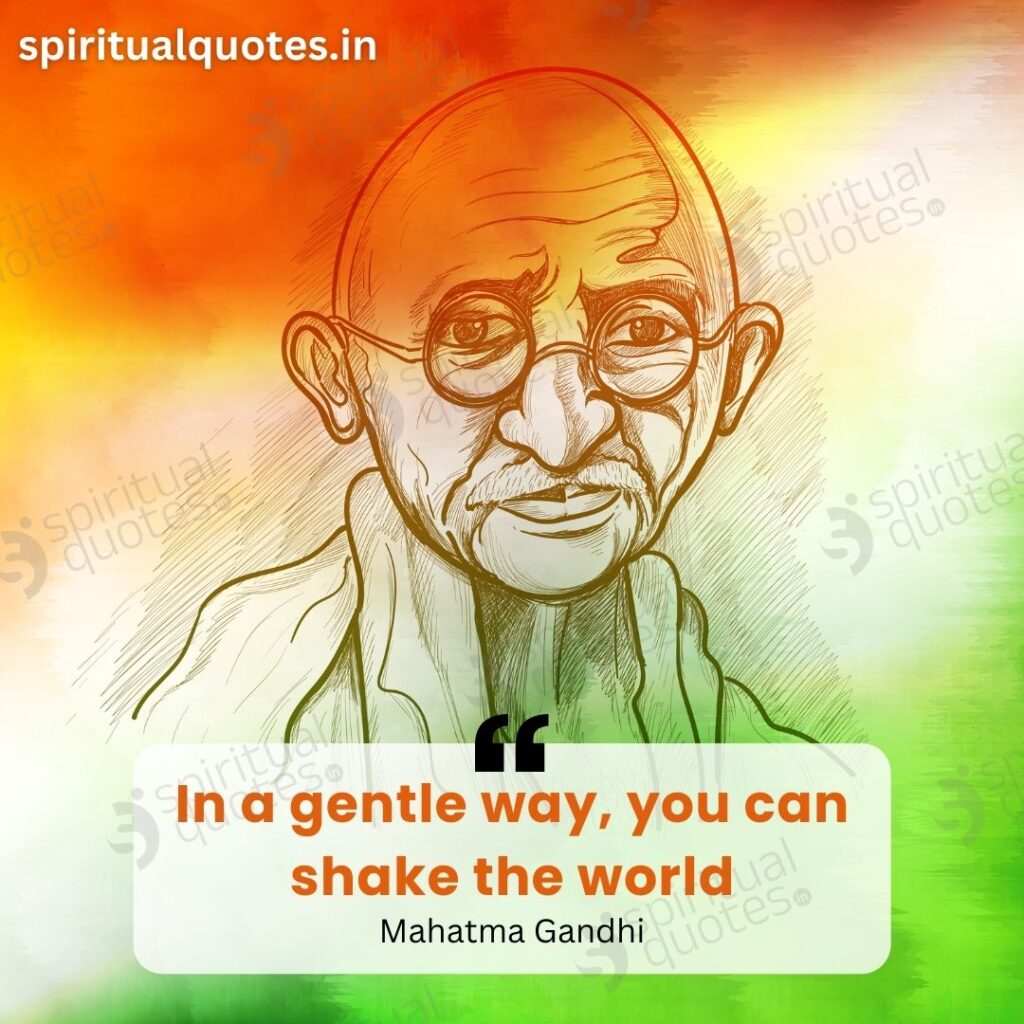
7. “The best way to find yourself is to lose yourself in the service of others.”
Meaning: True self-discovery and personal growth often occur when we look beyond ourselves to serve others. In dedicating our efforts to the benefit of others, we develop empathy and understanding and, in the process, discover our true potential.
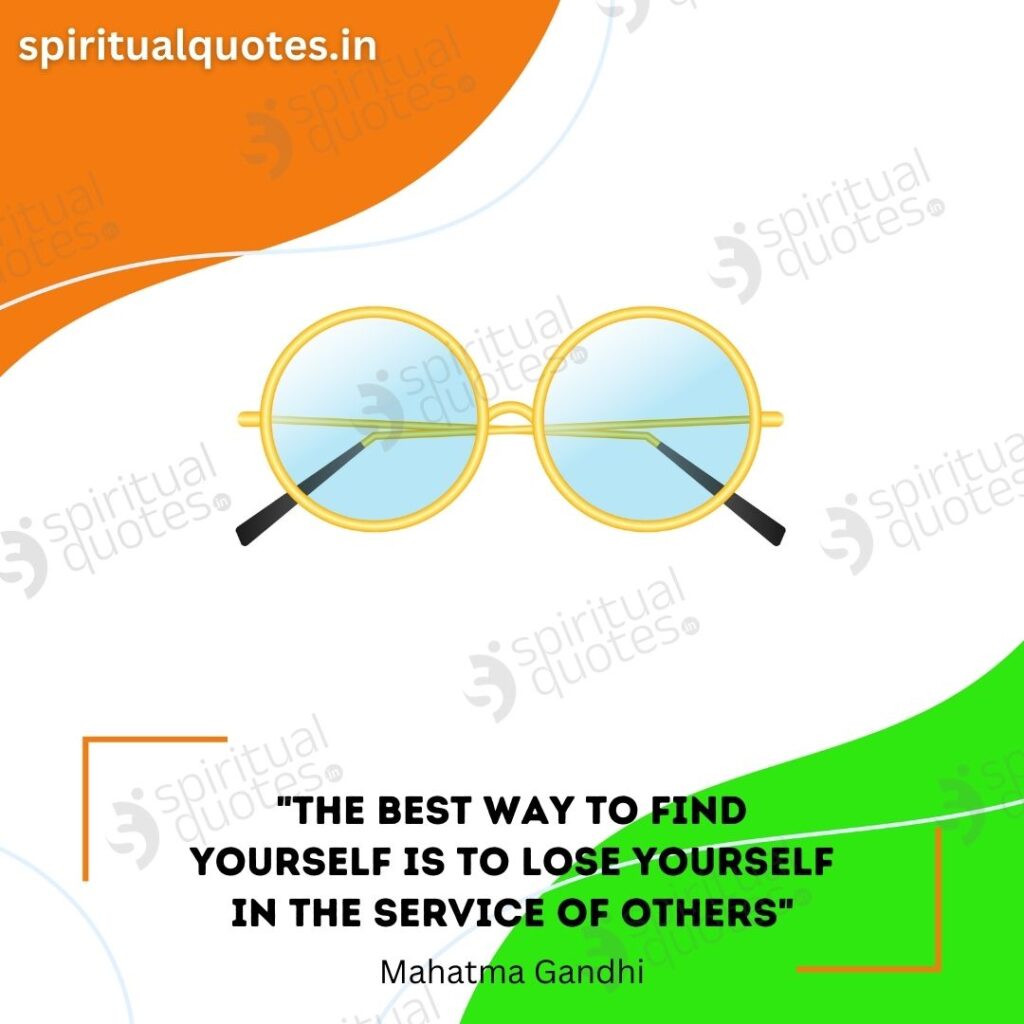
8. “An ounce of practice is worth more than tons of preaching.”
Meaning: Actions speak louder than words. It is far more valuable to embody the principles we believe in and demonstrate them through actions rather than merely talk about them.

9. “You must be the change you wish to see in the world.”
Meaning: This echoes the sentiment of the first quote, emphasizing that if we desire change in our surroundings or society, we must first embody that change ourselves. It reminds us of our responsibility to act as catalysts for the changes we seek.
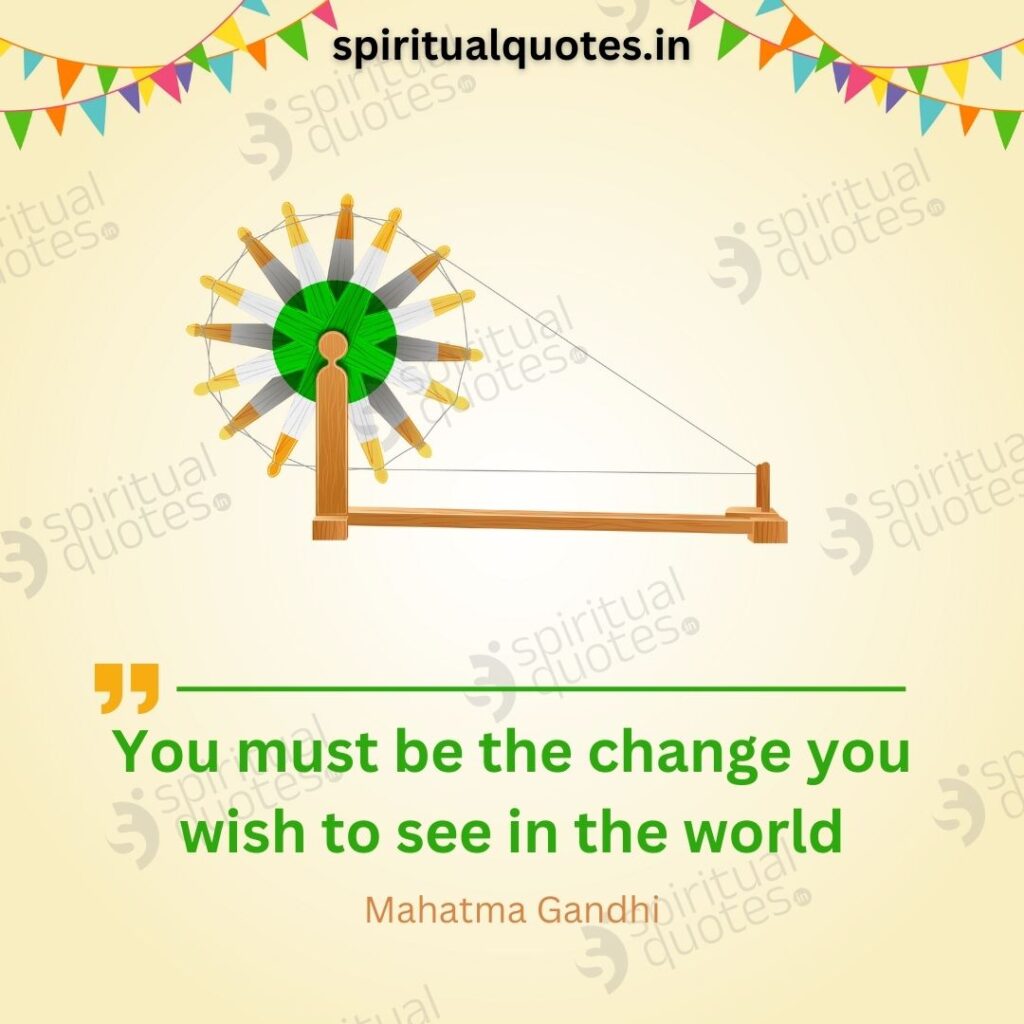
10. “Truth never damages a cause that is just.”
Meaning: No matter how harsh or uncomfortable the truth may be, it does not harm a righteous cause. The foundation of justice is truth, and a just cause is strengthened, not weakened, by honesty.
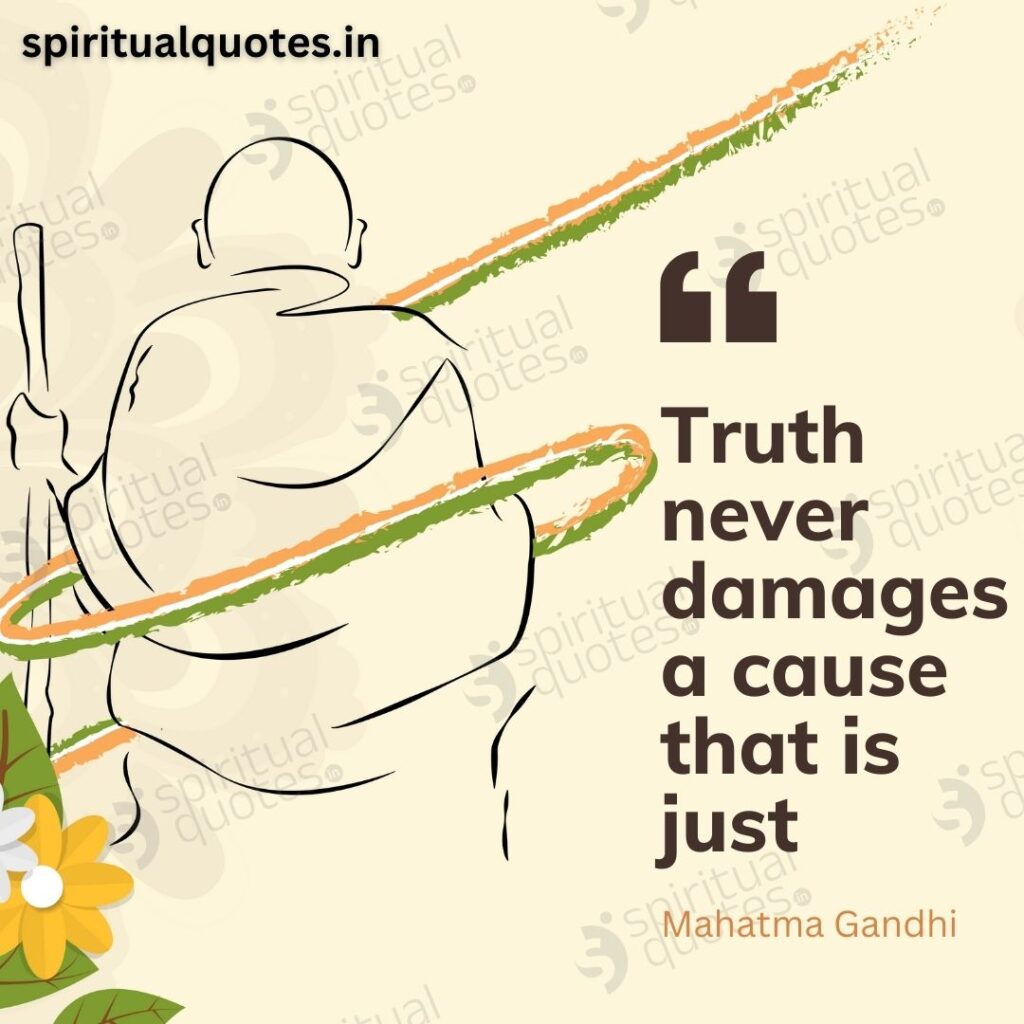
11. “It is health that is real wealth and not pieces of gold and silver.”
Meaning: The accurate measure of wealth is not material possessions but good health. Without health, all the money in the world would be worthless.
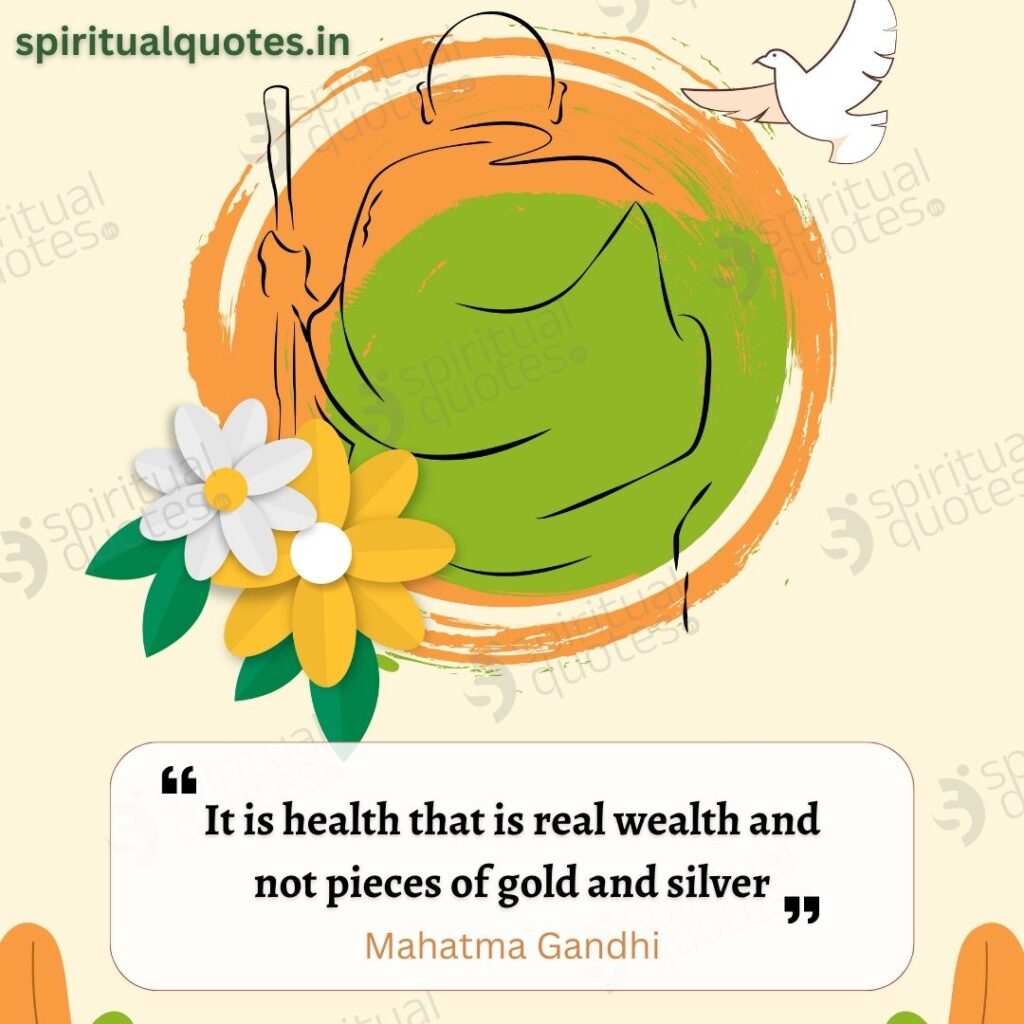
12. “Freedom is not worth having if it does not include the freedom to make mistakes.”
Meaning: Real freedom includes the right to make mistakes and learn from them. With this aspect, freedom is complete, as personal growth often stems from learning from our errors.
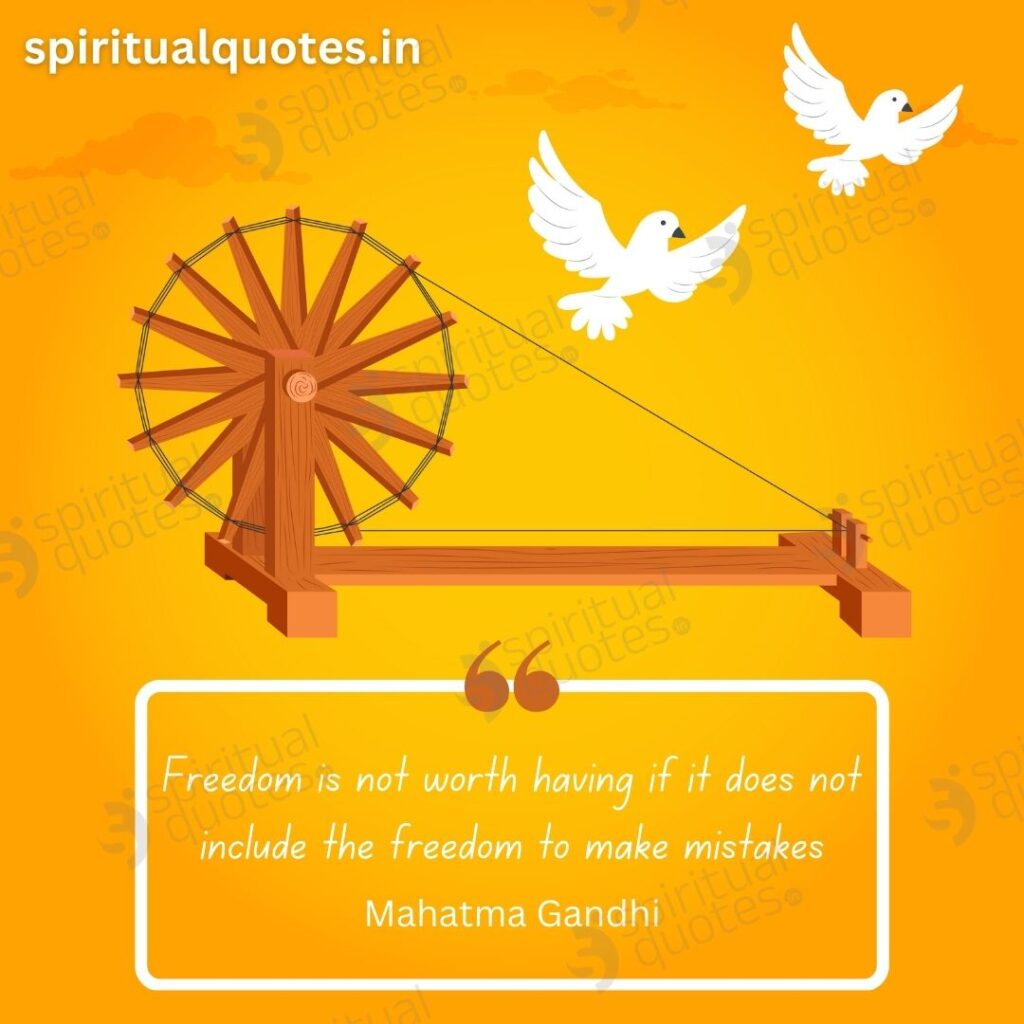
13. “Action expresses priorities.”
Meaning: Our actions are a reflection of what we value most. What we dedicate our time and energy to clearly indicates our priorities and commitments.
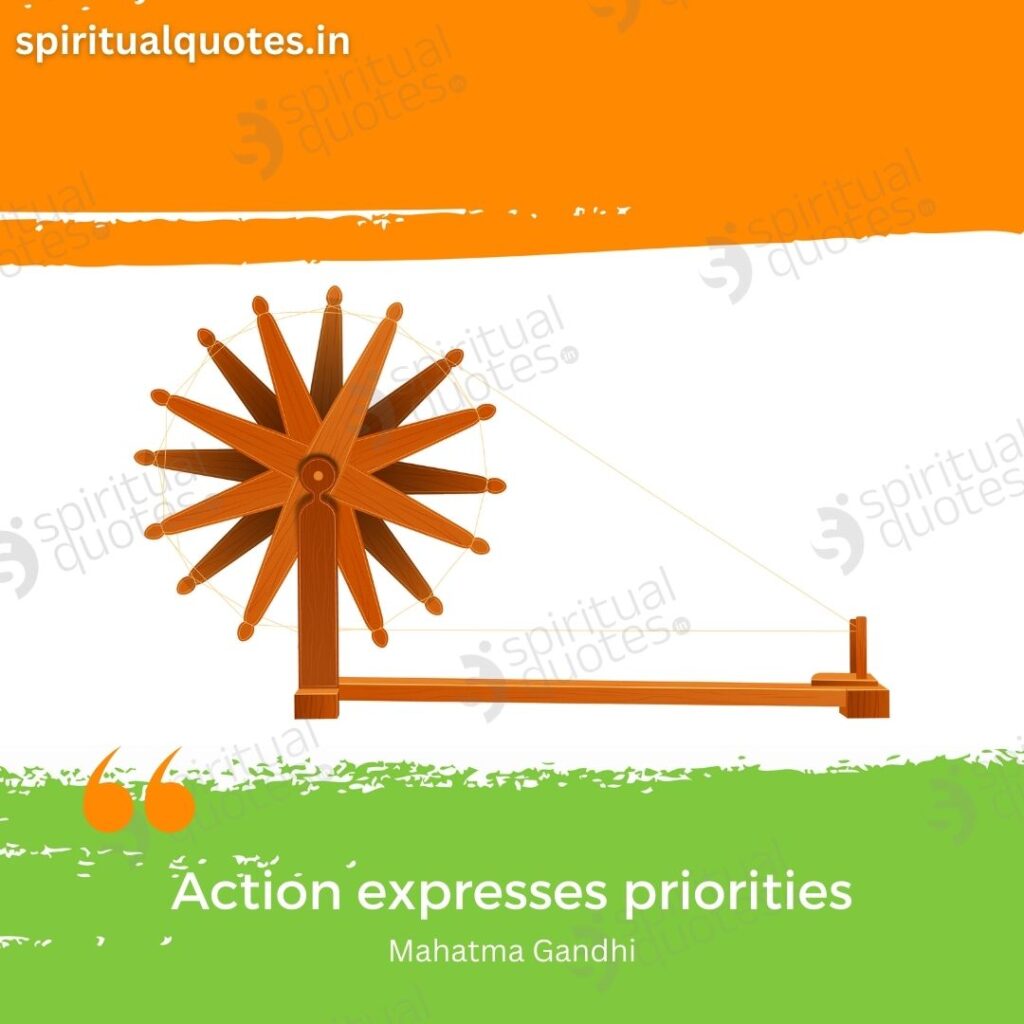
14. “Our greatest ability as humans is not to change the world, but to change ourselves.”
Meaning: True power lies in our capacity to adapt, grow, and evolve. We may not always have control over external circumstances, but we can control our reactions, behaviors, and personal growth.
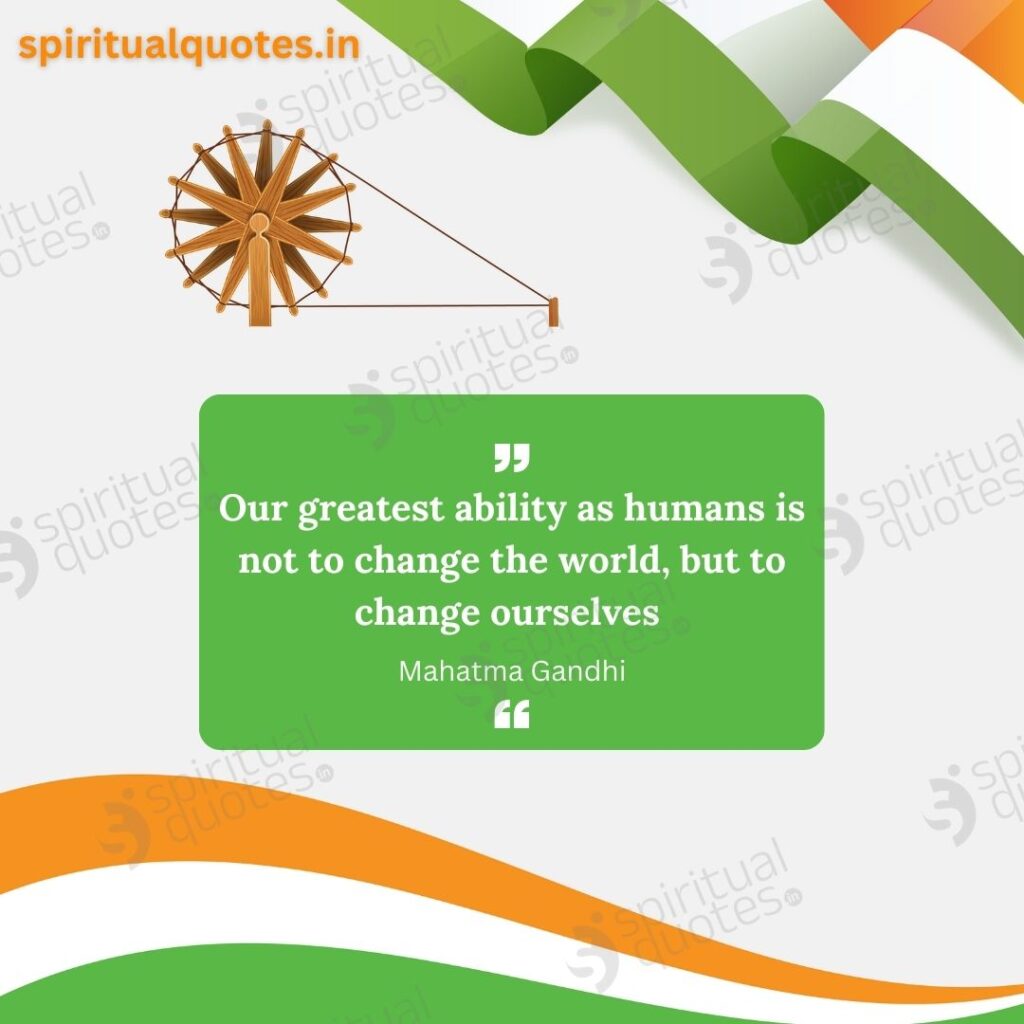
15. “The weak can never forgive. Forgiveness is the attribute of the strong”
Meaning: It takes immense strength to forgive someone who has wronged us. Only strong people can let go of resentment and bitterness to embrace forgiveness.
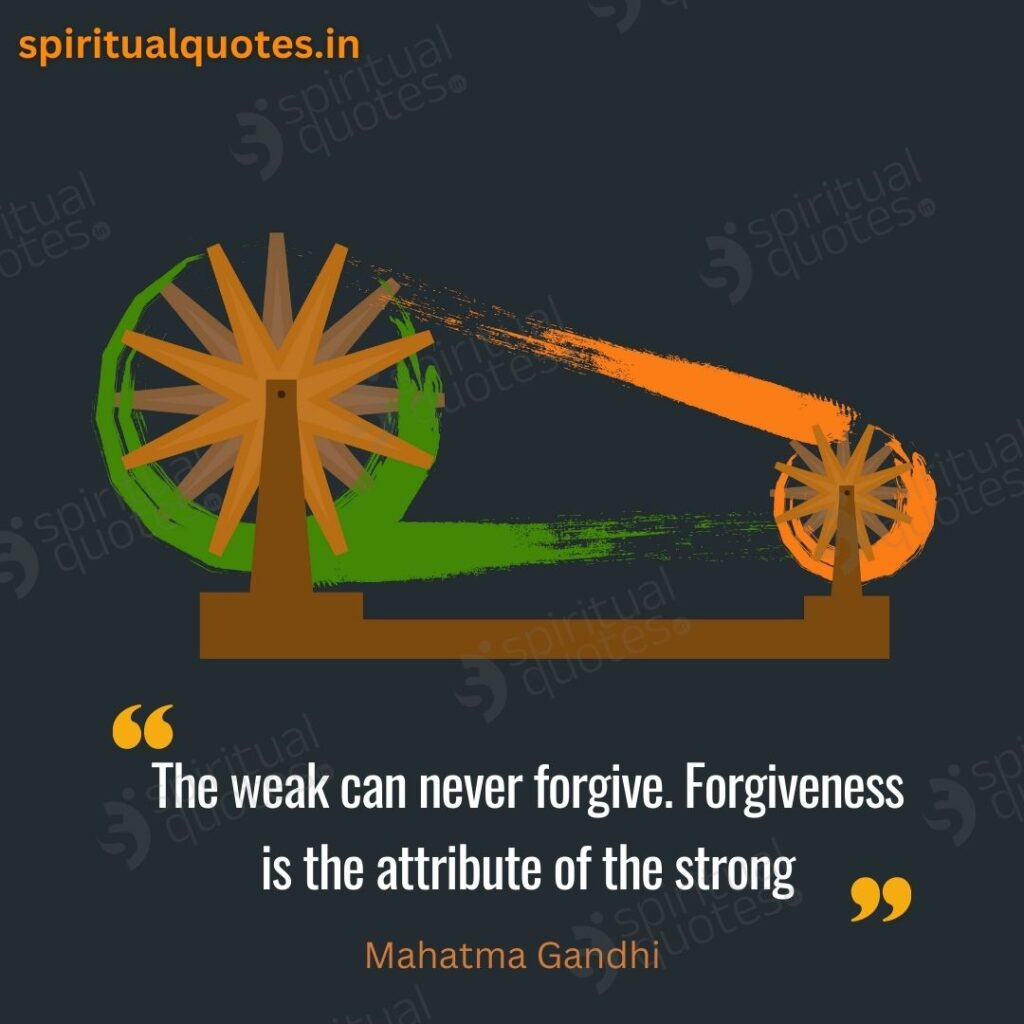
16. “You must not lose faith in humanity. Humanity is an ocean; if a few drops of the ocean are dirty, the ocean does not become dirty.”
Meaning: Despite the wrongdoings of a few, it’s crucial to maintain faith in the inherent goodness of humankind. Just like a few tainted drops can’t pollute an entire ocean, the actions of a few shouldn’t lead us to lose faith in humanity.
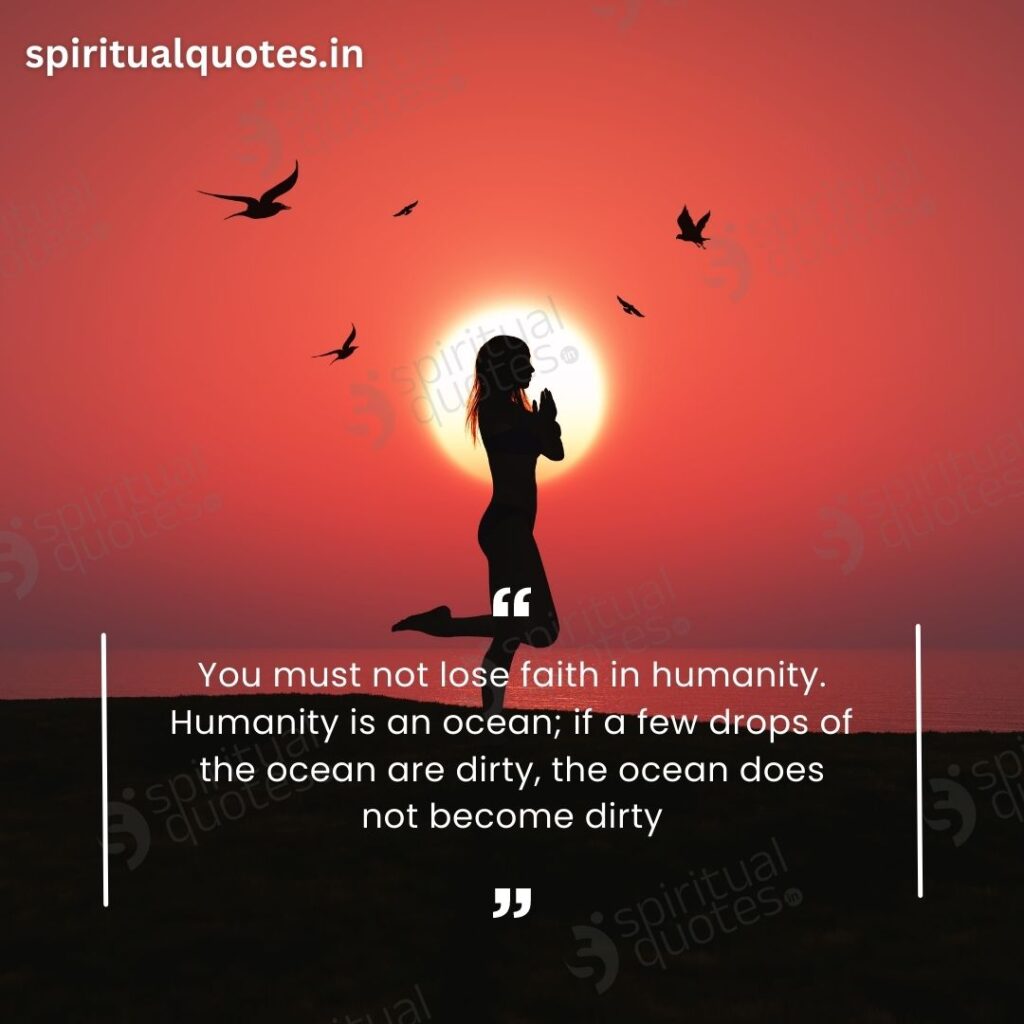
17. “Hate the sin, love the sinner.”
Meaning: It’s important to distinguish between the person and their actions. You can disapprove of someone’s actions, yet still, show them love and understanding as individuals.
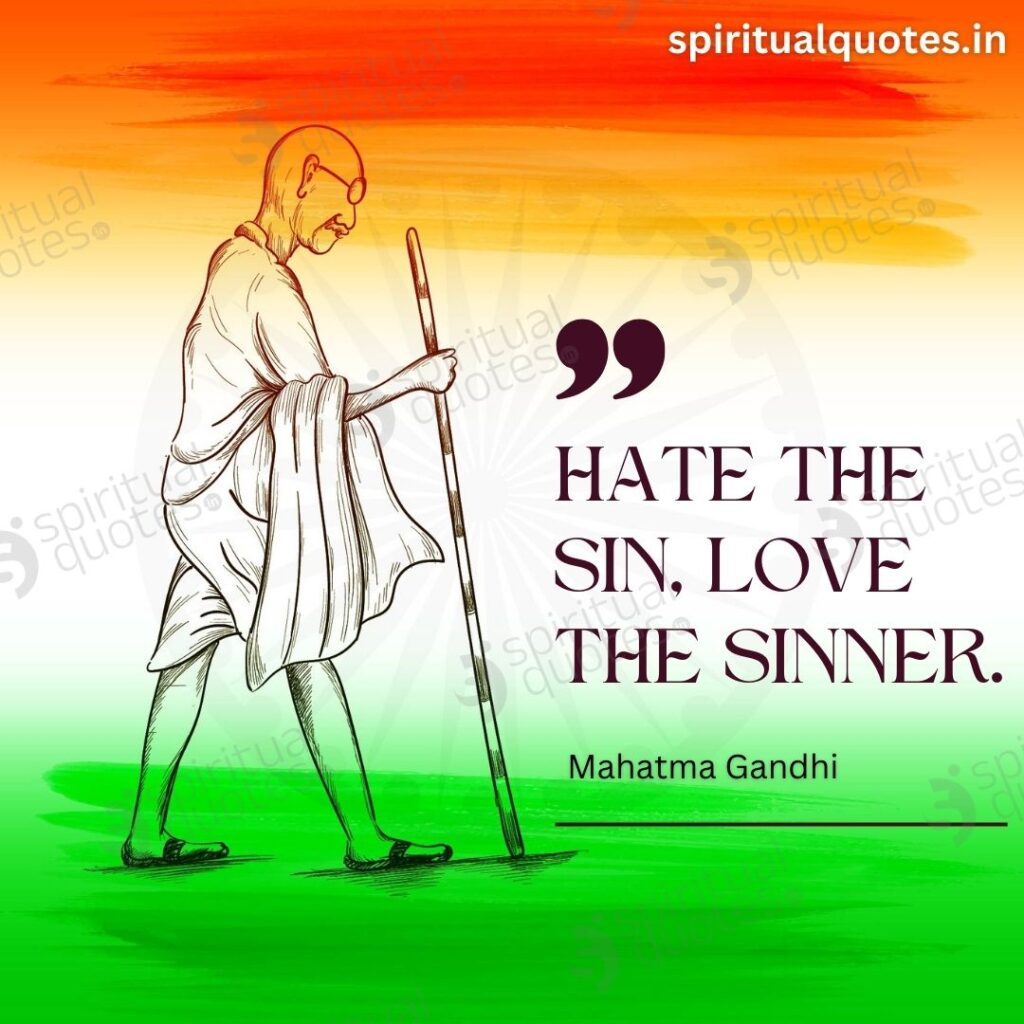
Quotes on Wisdom
18. “A man is but the product of his thoughts what he thinks, he becomes.”
Meaning: Our thoughts shape our reality. What we focus our thoughts on, we inevitably become. Positive thinking cultivates a positive life, while negative thinking breeds negativity.
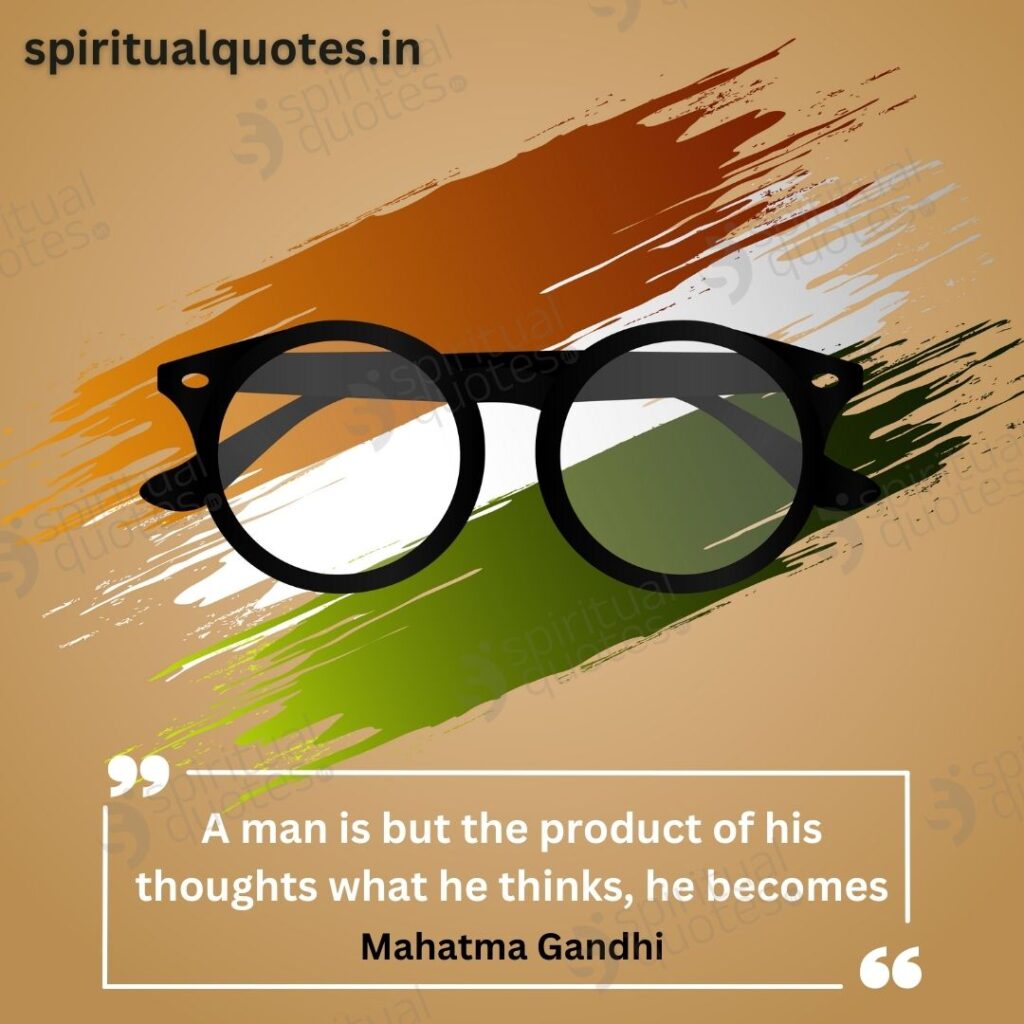
19. “Where there is love there is life.”
Meaning: Love is the essence of life. It’s the force that connects us, inspires us, and gives our lives meaning. Without love, existence lacks vitality and purpose.
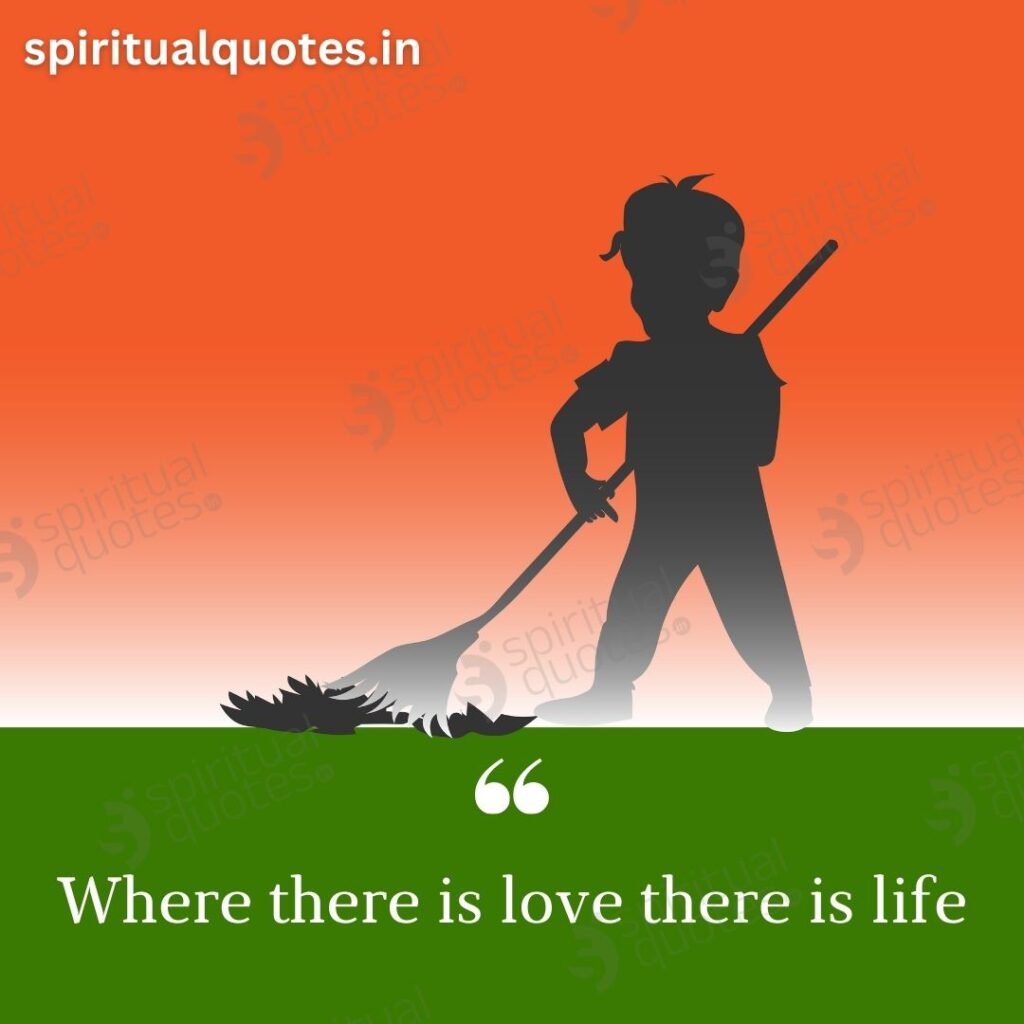
20. “It is better to be violent if there is violence in our hearts than to put on the cloak of nonviolence to cover impotence.”
Meaning: Authenticity is more valuable than feigning virtue. It’s better to be honest about our feelings, even if they are violent than to pretend to be non-violent while harboring hostility.
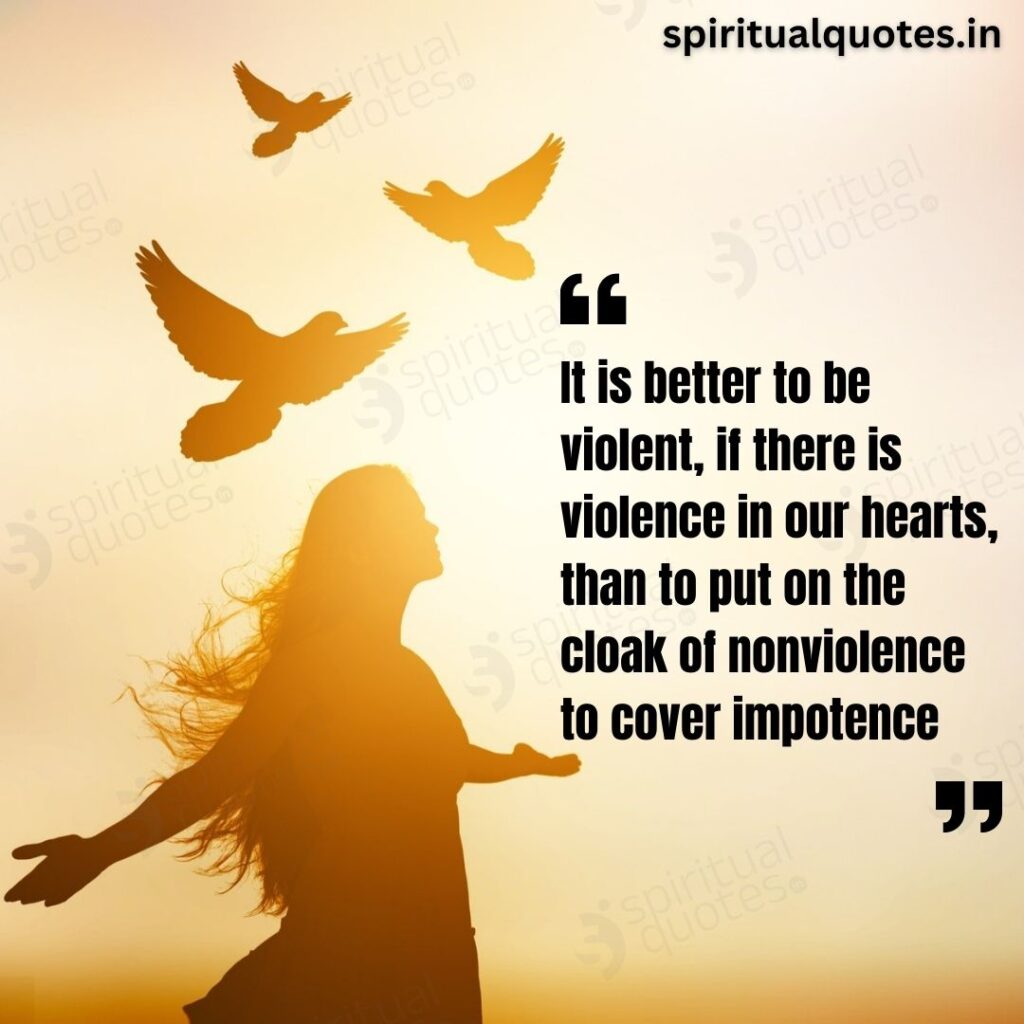
21. “You can chain me, you can torture me, you can even destroy this body, but you will never imprison my mind.”
Meaning: Physical constraints cannot limit the power of the mind. No matter our external situations, our thoughts, ideas, and spirit remain free.

22. “The best way to see God or truth is to see it in all beings alike and treat them all alike.”
Meaning: Divinity or truth isn’t confined to specific entities. It’s present in all beings. Recognizing this universality and treating all beings equally is a path toward understanding the grand truth.
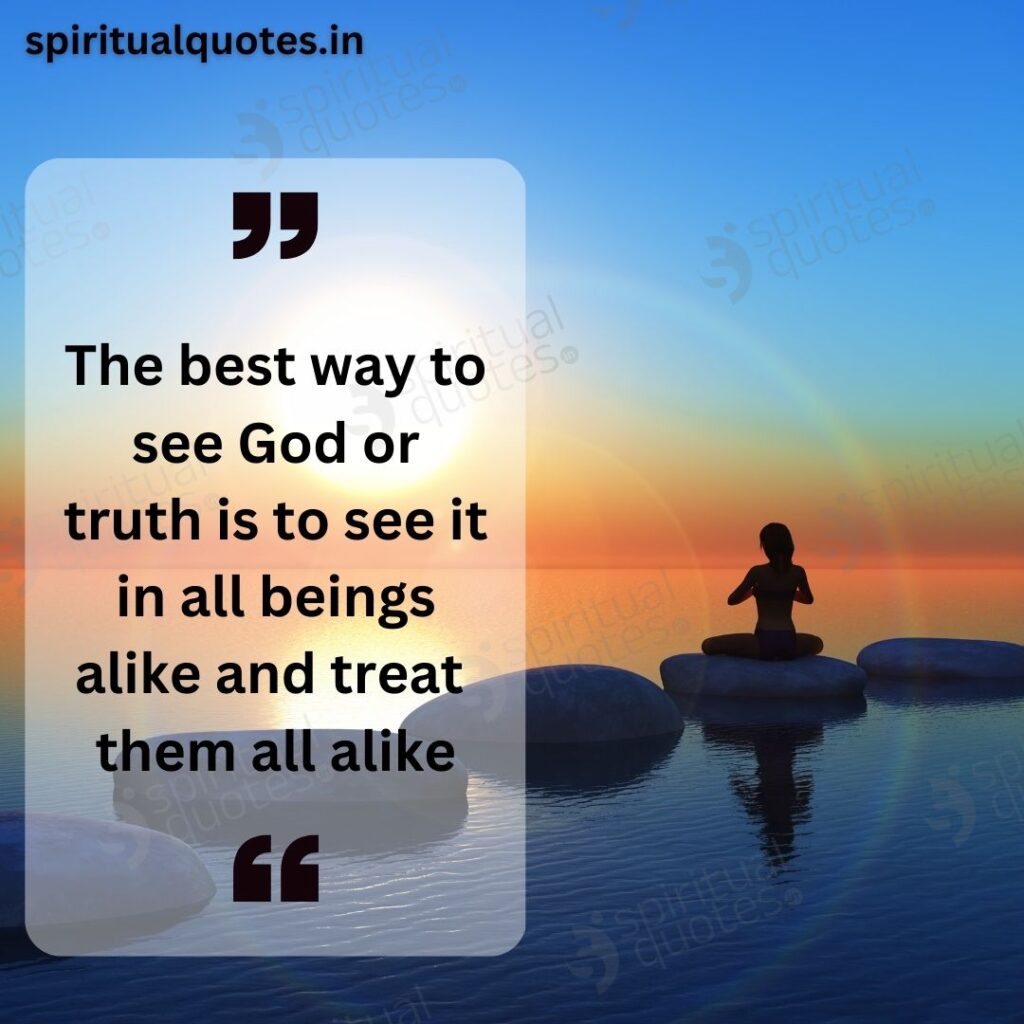
23. “To believe in something, and not to live it, is dishonest.”
Meaning: Our beliefs are empty unless they’re manifested in our actions. Living in alignment with what we profess to believe is a testament to our integrity.
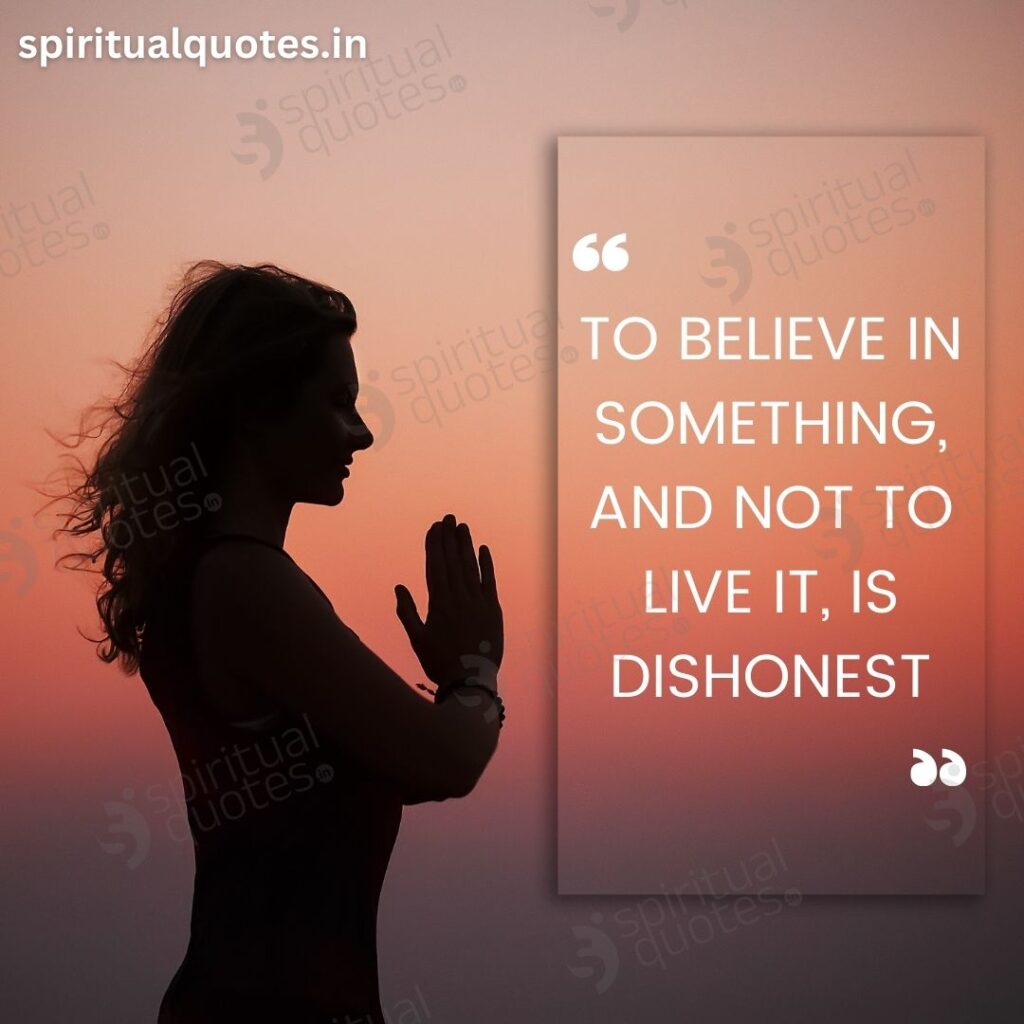
24. “When I despair, I remember that all through history the way of truth and love has always won. There have been tyrants and murderers, and for a time they can seem invincible, but in the end, they always fall — think of it, always.”
Meaning: History shows us that truth and love always prevail despite periods of darkness. Tyranny may appear insurmountable, but it never lasts. Love and truth are the enduring forces of humanity.

25. “The good man is the friend of all living things.”
Meaning: A virtuous person demonstrates compassion and kindness not just to their fellow humans but to all life forms. They understand the interconnectedness of all living beings and respect life in all its forms.
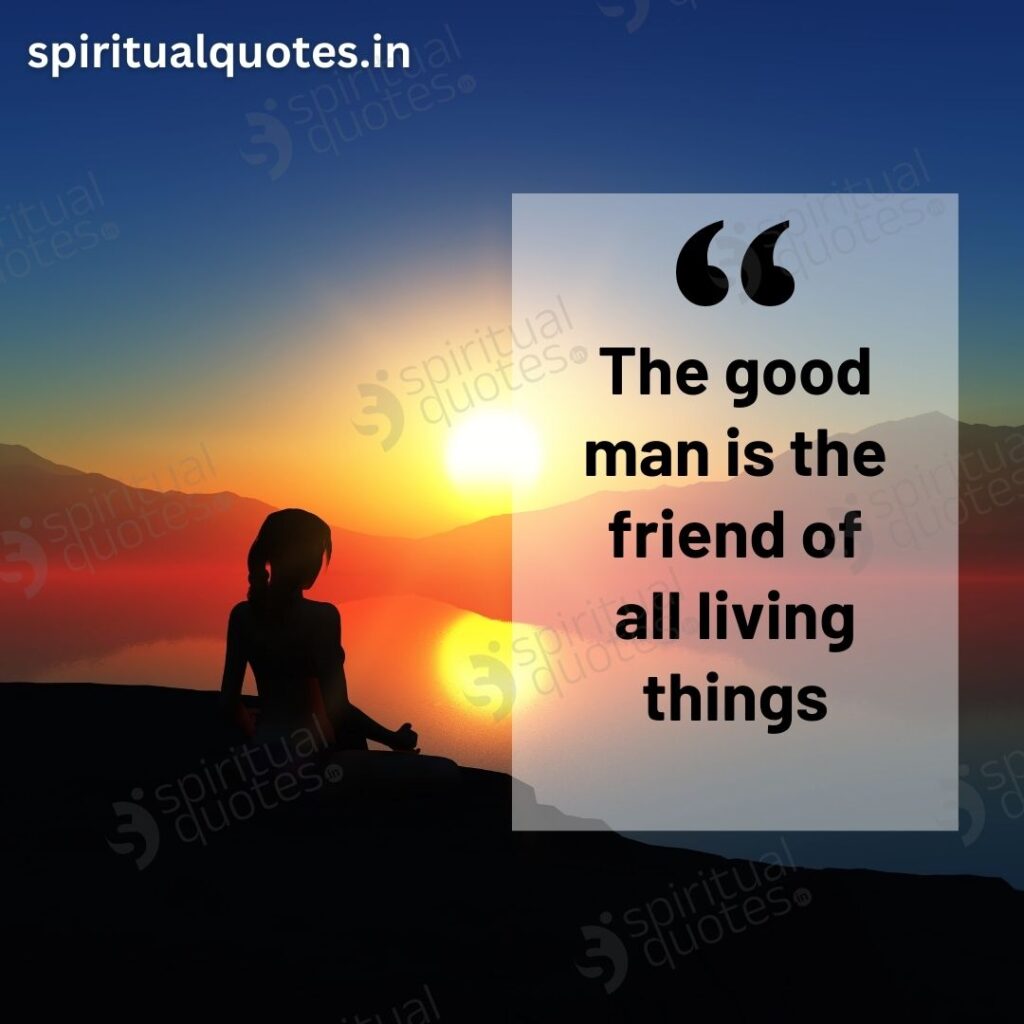
26. “The future depends on what you do today.”
Meaning: Our actions today shape our tomorrow. The decisions we make and the steps we take in the present lay the foundation for our future outcomes.
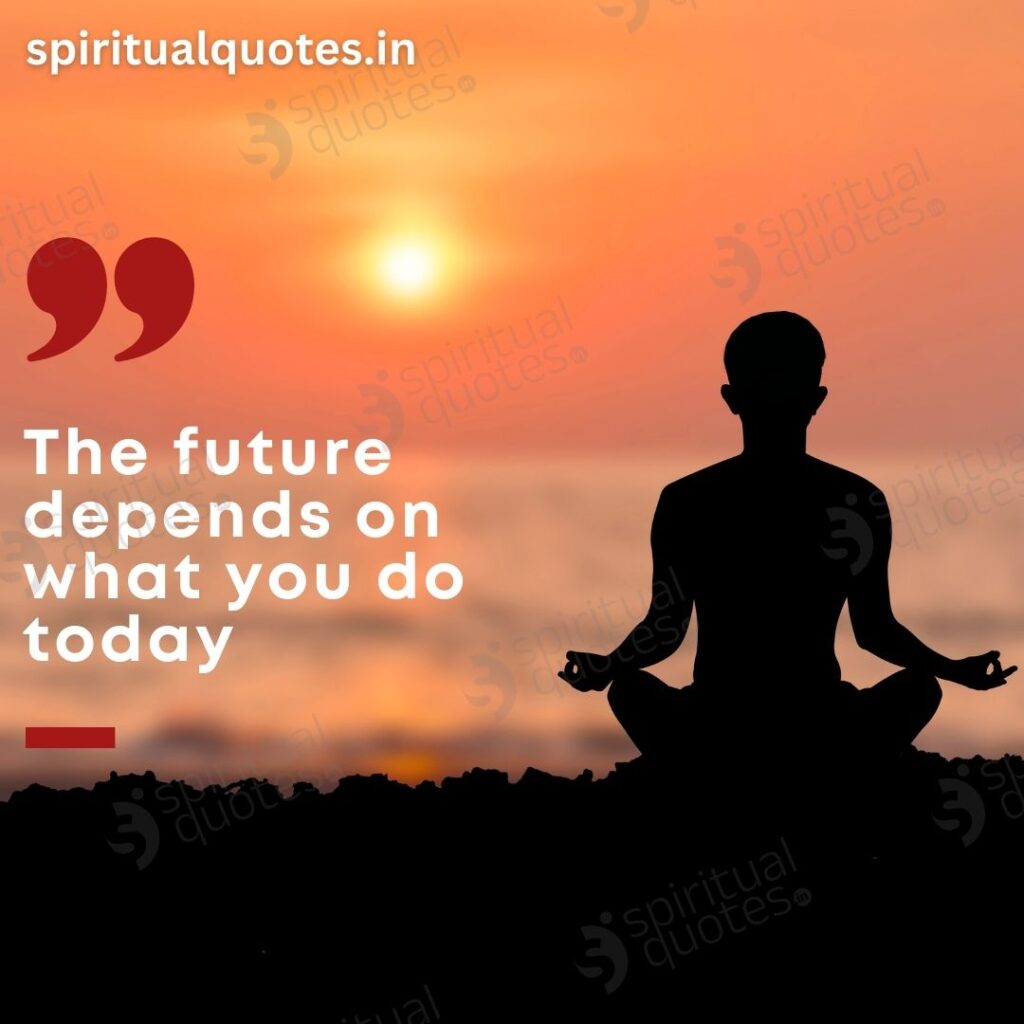
27. “A small body of determined spirits fired by an unquenchable faith in their mission can alter the course of history.”
Meaning: Even a small group of people, if they are driven and have an unwavering belief in their cause, can bring about significant change. The size of the group matters less than the intensity of their determination and faith.
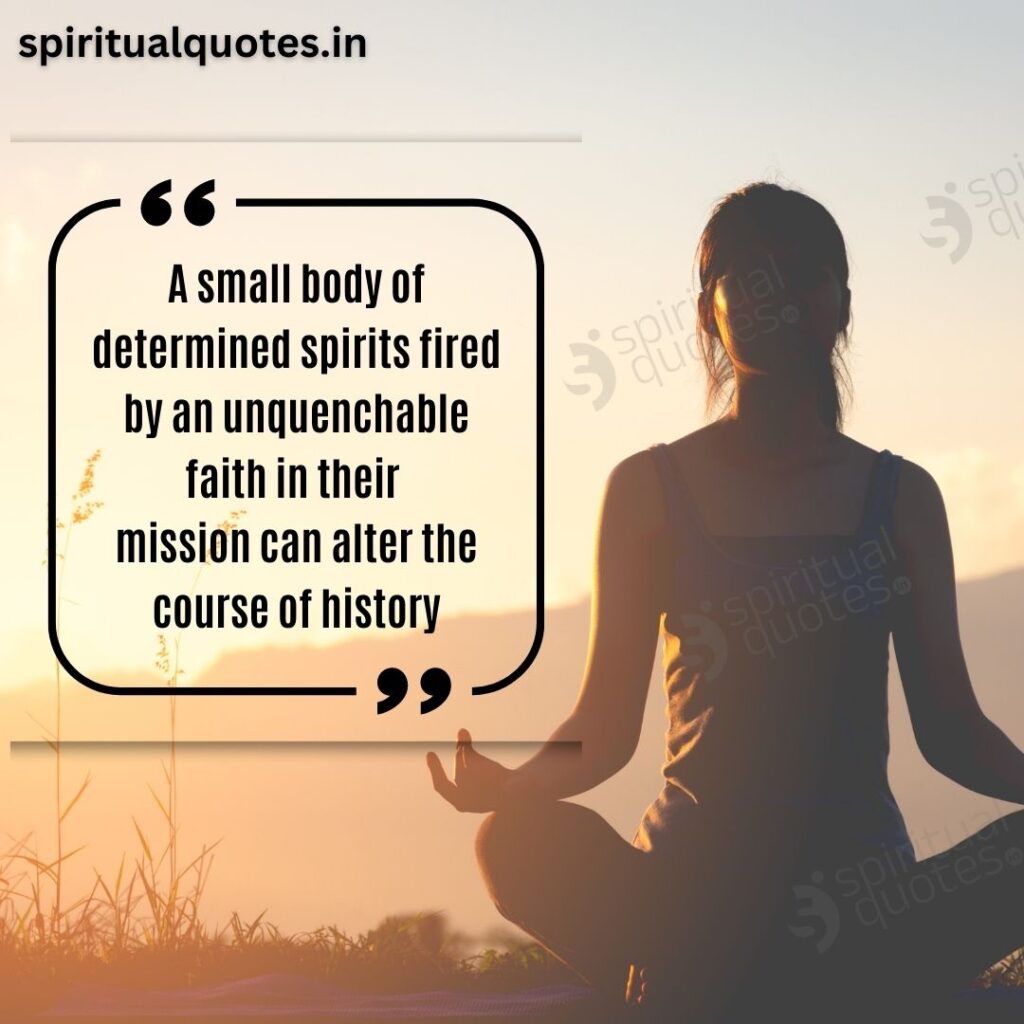
28. “Purity of personal life is indispensable for building up a sound education.”
Meaning: A solid education isn’t just about academic learning; it also requires personal integrity and virtuous living. These are essential in building character, which is a fundamental part of true education.
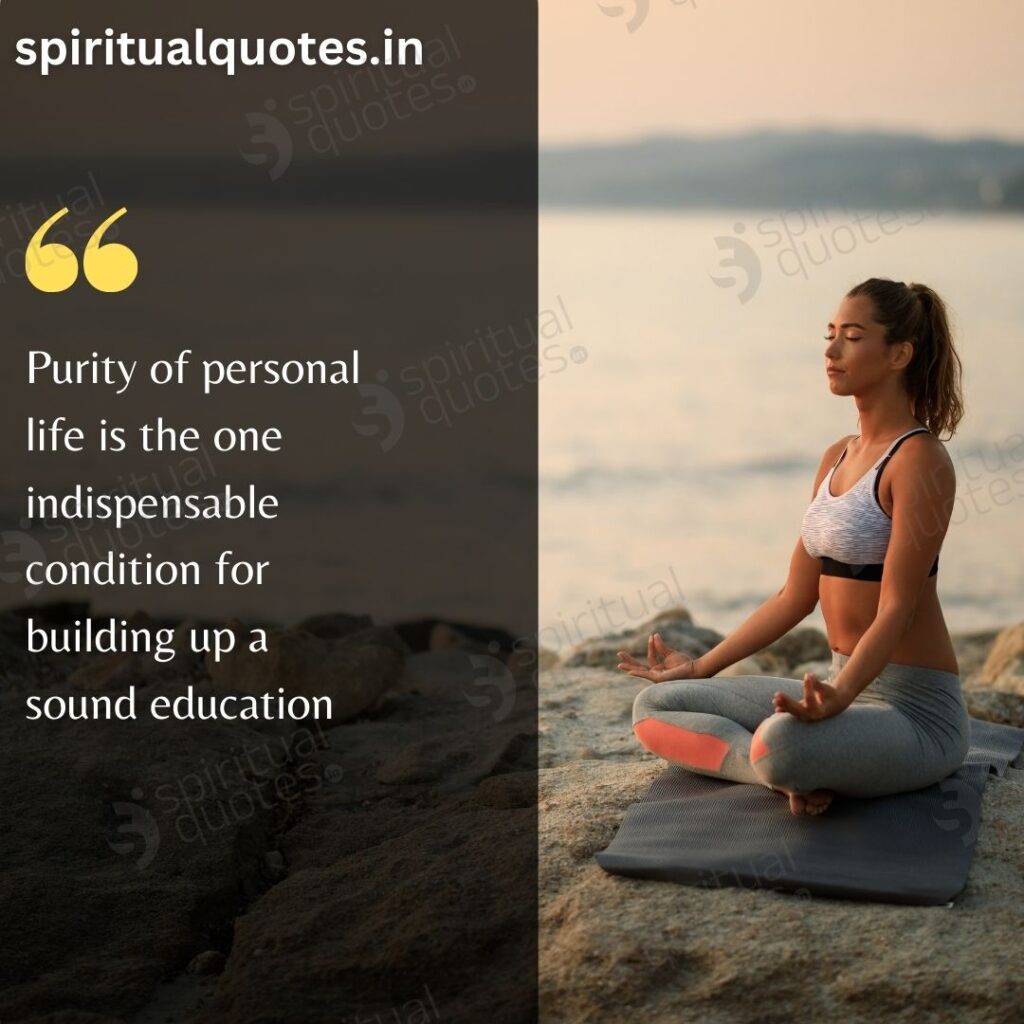
29. “The greatness of a nation and its moral progress can be judged by how its animals are treated.”
Meaning: How a society treats its most vulnerable members, including animals, reflects its true moral standing. A nation’s greatness is measured not just by its achievements but by its compassion and ethical treatment of all beings.
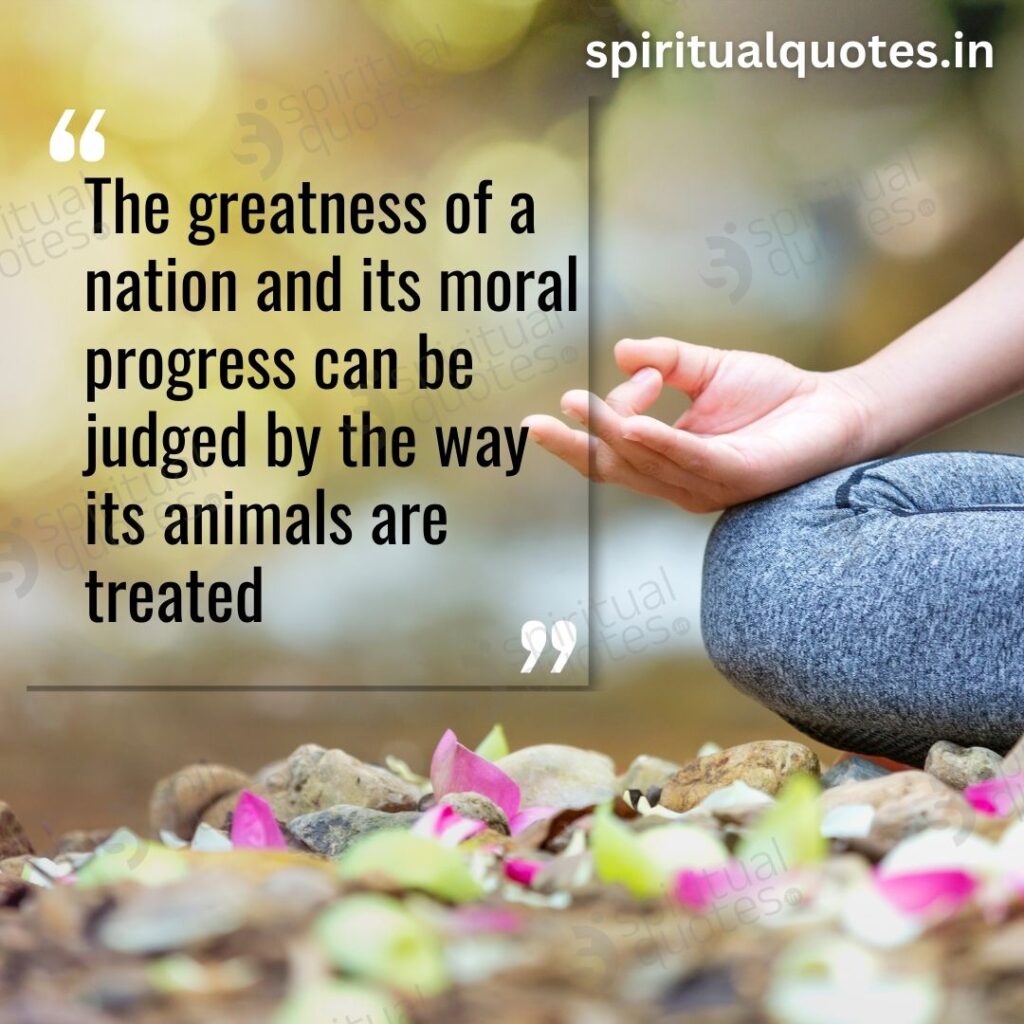
30. “Service rendered without joy helps neither the servant nor the served. But all other pleasures and possessions pale into nothingness before service rendered in a spirit of joy.”
Meaning: Service given without happiness benefits no one. But when service is offered joyfully, it becomes a source of profound fulfillment, surpassing all other forms of pleasure and wealth.
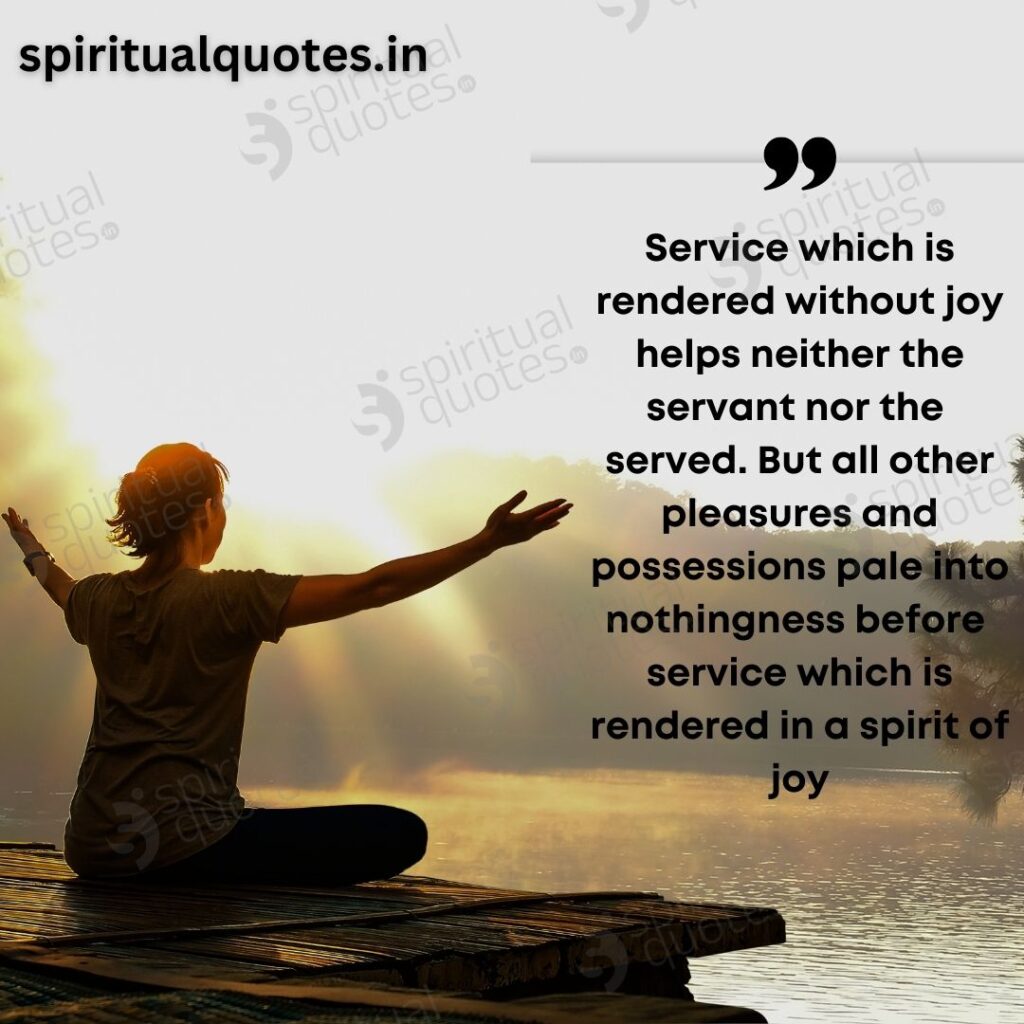
31. “It is easy enough to be friendly to one’s friends. But to befriend the one who regards himself as your enemy is the quintessence of true religion.”
Meaning: True compassion extends beyond our circle of friends to include even those who consider us adversaries. Finding common ground with an enemy requires deep understanding, empathy, and love, reflecting the essence of true spirituality or religion.
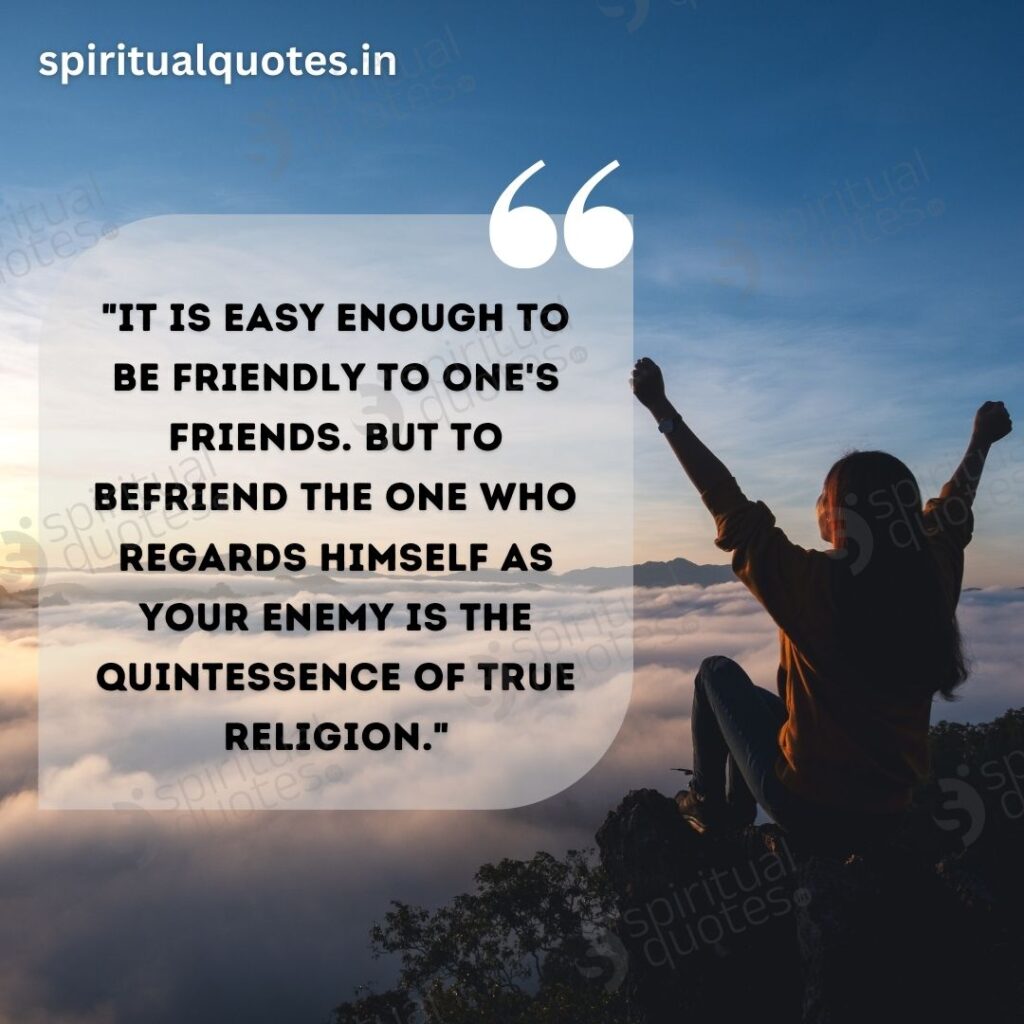
32. “Peace is its own reward.”
Meaning: The value of peace is immeasurable and needs no other incentive. Its intrinsic benefits – tranquility, harmony, and contentment – are rewarding, offering a state of being that is its own reward.

33. “A man is but the product of his thoughts what he thinks, he becomes.”
Meaning: Our thoughts shape our reality. The ideas and beliefs we nurture in our minds profoundly impact our actions, behaviors, and overall life outcomes.
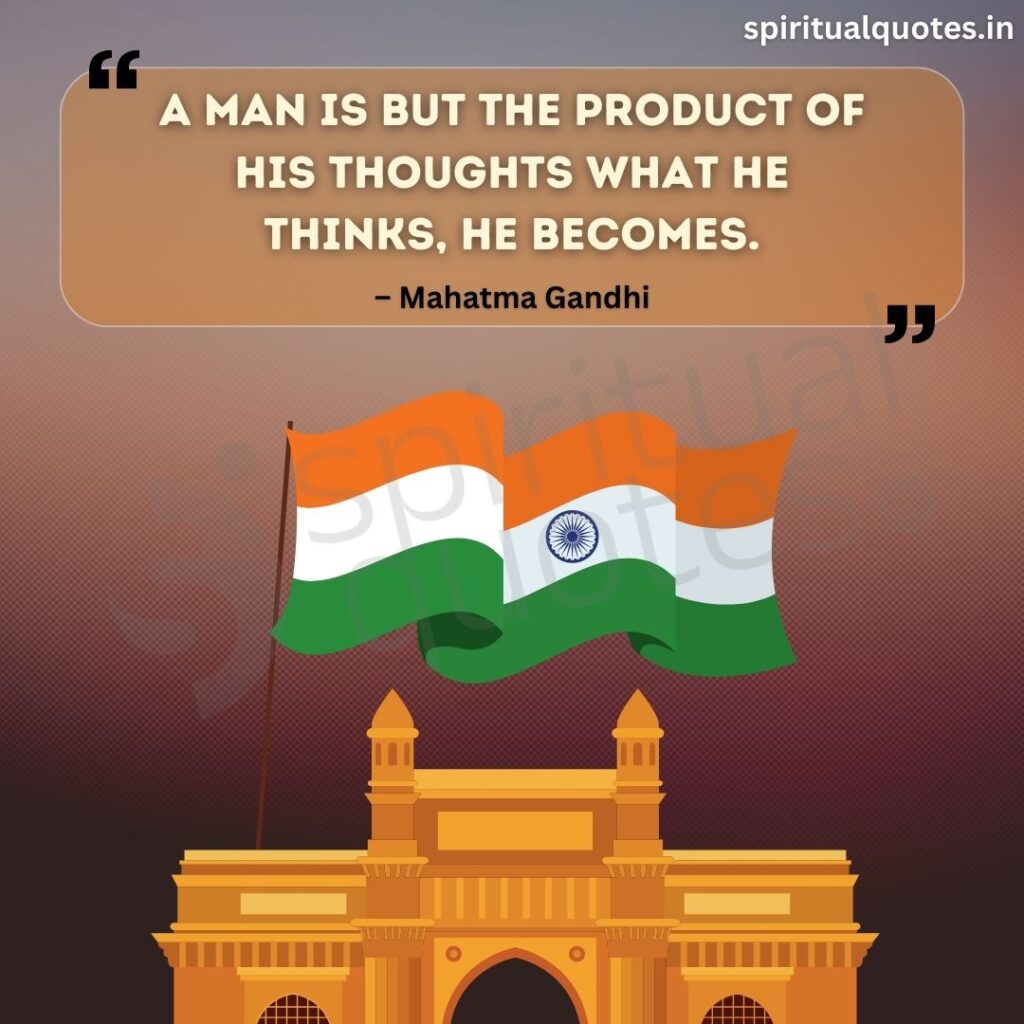
34. “You must not lose faith in humanity. Humanity is an ocean; if a few drops of the ocean are dirty, the ocean does not become dirty.”
Meaning: Despite the misdeeds of a few individuals, it’s crucial to maintain faith in the inherent goodness of mankind. Just like a few tainted drops can’t pollute an entire ocean, the actions of a few shouldn’t lead us to lose faith in all of humanity.
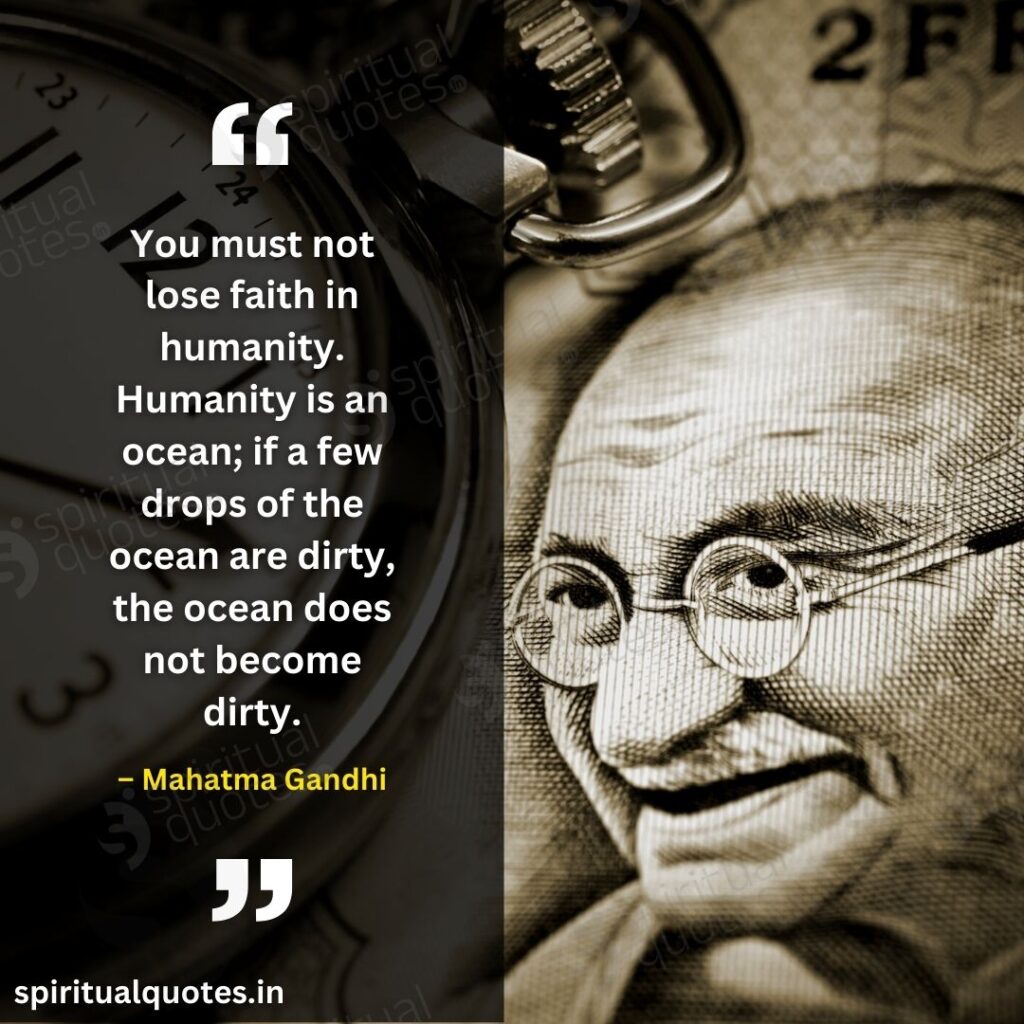
35. “Freedom is not worth having if it does not connote freedom to err.”
Meaning: Real freedom includes the liberty to make and learn from mistakes. Proper growth and learning often stem from our errors, and a freedom that doesn’t allow for this is not genuinely liberating.

36. “First they ignore you, then they laugh at you, then they fight you, then you win.”
Meaning: Progress and victory often involve overcoming adversity and resistance. Initial dismissal and mockery may give way to active opposition before leading to triumph.
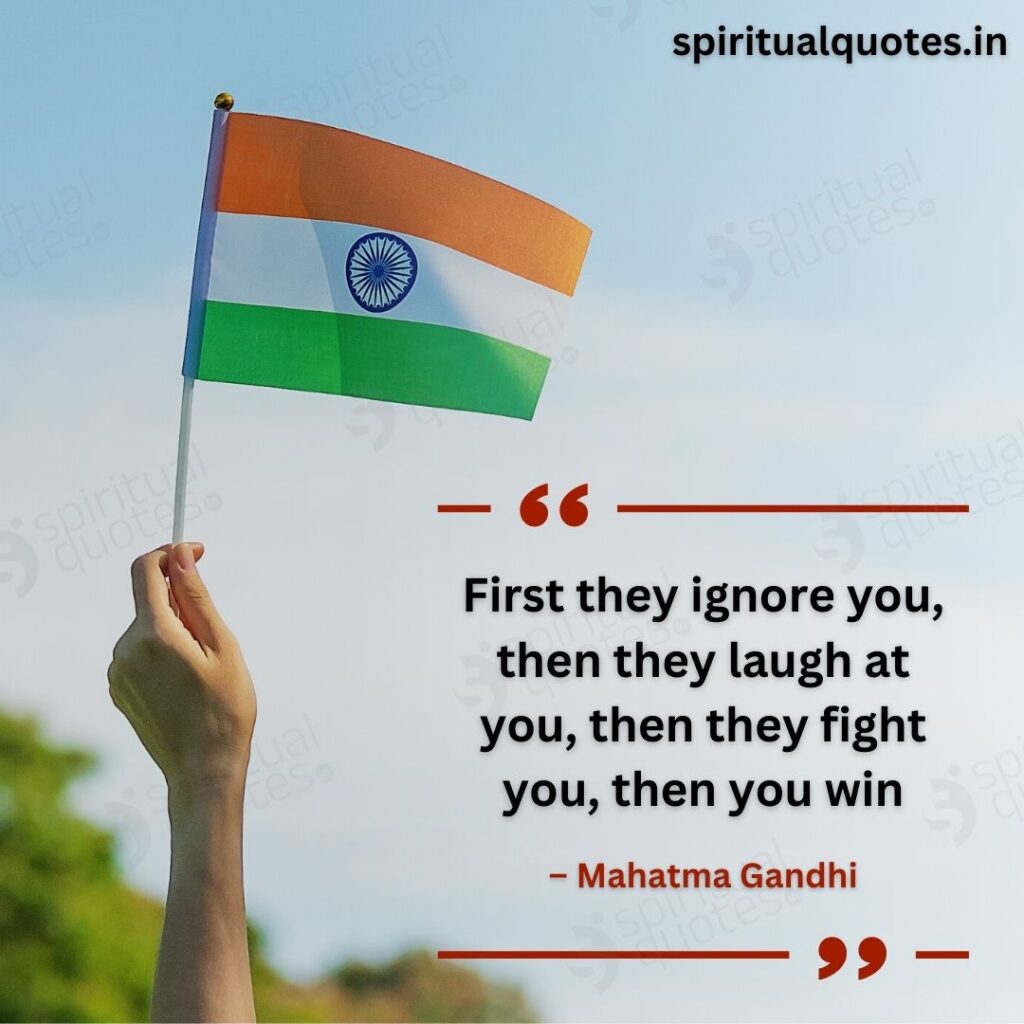
37. “The weak can never forgive. Forgiveness is the attribute of the strong.”
Meaning: Forgiveness requires strength. Those who are weak often hold onto resentment, but it takes a person of strength and courage to forgive and move forward.

38. “No culture can live if it attempts to be exclusive.”
Meaning: A culture that isolates itself and resists diversity and inclusivity cannot thrive. It is through exchange, integration, and acceptance of differences that cultures truly flourish.

Conclusion
Mahatma Gandhi’s quotes are timeless nuggets of wisdom, capturing his profound understanding of life and humanity. His words mirror his lifelong journey in pursuit of truth and non-violence, igniting in us the spirit of perseverance, self-reliance, and compassion. Each quote presents us with an opportunity to reflect on our values, actions, and their impact on our lives and society at large.
In his book ” My Experiments with Truth” he has explained his journey and teachings that he has learned over the years through his experiences. His quotes remind us that the responsibility of creating a just, peaceful, and compassionate world lies within each one of us just like Rabindranath Tagore and Swami Vikenananda’s quotes that ignite wisdom and passion.
As we conclude, let’s carry forward the essence of Gandhi’s teachings in our daily lives, striving to embody the change we wish to see, just as the great Mahatma did.

